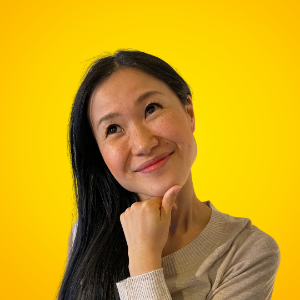Japanese Yokai: Tengu

Continuing with Yokai, we'll dive into the mysterious world of Tengu.
Let's read about other Yokai: Kappa and Oni!
👺What is a Tengu?

(image via Wikipedia)
In Japan, everyone knows what a tengu looks like. Unlike the kappa, these long-nosed monsters haven’t become cute characters in popular culture. Tengu have a more serious and even scary look. They are often linked to practices done in the mountains and are seen as semi-divine creatures. This might be why they haven't found the same warm place in people’s hearts as the kappa.
🔴The Nose Knows
Tengu are known for their long noses. These noses are often seen as symbols of arrogance and pride. In Japan, saying someone “acts like a tengu” てんぐになる means they are full of themselves.
👺The Origins of Tengu
The idea of the tengu dates back to the seventh century. But did you know the tengu wasn’t originally Japanese? 🤯 The word “tengu” comes from the Chinese “tiangou”, which means “celestial dog.” In China, tiangou were seen as bad omens, often associated with comets or meteors.
When the legend arrived in Japan, the tengu transformed. They went from being seen as “celestial dogs” to fox-like creatures capable of bewitching people. Over time, tengu started to look more bird-like, often resembling black kites or other birds of prey.
🔴The Evolution of Tengu
By the Edo period (1603–1868), tengu had changed again. They became human-like figures with long noses, red faces, and wings. This transformation is often attributed to the artist Kanō Motonobu, who supposedly dreamed of a tengu and painted what he saw.

(Tengu priest by Kanō Motonobu - nippon.com)
During this time, tengu also became regarded as quasi-divine beings. They were seen as mountain spirits and even had the power to prevent fires. A famous tengu named Sanjakubō became associated with Akiha Gongen, a fire-quenching deity.
👺The Modern View of Tengu
Today, tengu are still seen as mysterious and powerful beings. They are not as cuddly or friendly as other yōkai, but their rich history and fascinating transformations make them an essential part of Japanese folklore.
Your Sensei,
Hikari 👩🏻🏫
Join my ニュースレター Newsletter 📩
You can expect an email from me once a week about Japanese culture.
Don't worry, your information will not be shared.
We hate SPAM. We will never sell your information, for any reason.



